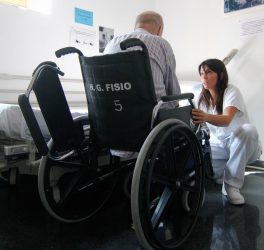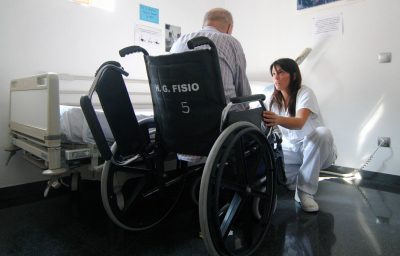
A new UK-Bangladesh research network led by Imperial is aiming to help strengthen mental health services in Bangladesh.
The Mon Prothom/Mind First research partnership is carrying out several research studies to help strengthen services and integrate mental health into Bangladesh’s Universal Health Coverage.
A launch event, co-organised by Imperial and Chatham House brought together the research collaborators with government ministers, and senior officials and leaders from Bangladesh, UK and global institutions, health professions and UK funding organisations to discuss ways forward for mental health and Universal Health Care in Bangladesh.
“This partnership is an exciting opportunity to help develop ways for Bangladesh to achieve ‘mental health for all’ through embedding mental health as part of universal health coverage.” said Project lead, Professor Mala Rao, from Imperial’s School of Public Health.
“This is even more poignant this year with the global impact of Covid-19 on all our lives and we look forward to contributing to improving mental health care and developing our partnership and friendship over the coming years.”
The launch event brought together academics, policymakers, charities and funders to discuss ways to improve mental health services in Bangladesh
Bangladesh has already made impressive gains in improving many of its health indicators such as life expectancy, total fertility rates and child and maternal mortality, and is well placed to build on this history to develop and to deliver effective mental health services.
There is now a growing recognition of the crucial importance of mental health in improving healthy life expectancy. There are challenges, such as a significant shortage in trained healthcare workers.
Equally, there are opportunities to help develop and strengthen services and capacity especially at the primary care and community level, and to design a care pathway which offers equity of access to affordable, universal mental health care.
The project is funded by Imperial’s award from the UK Research and Innovation (UKRI) Global Challenges Research Fund.
Ms Saima Wazed Hossain, Chairperson, Bangladesh National Advisory Committee on Neuro-development Disorders and Autism, and Mental Health Policy Lead, gave the key-note speech outlining the landscape for mental health and universal health coverage in Bangladesh and her vision for the future of mental health care.
Ms Wazed Hossain said: “Mental health is truly a global challenge that can no longer be ignored. As part of the 2030 Sustainable Development Agenda all countries have committed to achieve UHC by 2030. There can be no health without mental health and without health there can be no Sustainable development.
Speaking at the event, the British High Commissioner for Bangladesh, Robert Chatterton Dickson, said: “Mental health is a neglected emergency throughout the world, made much worse by the effects of the COVID pandemic on people’s lives.








